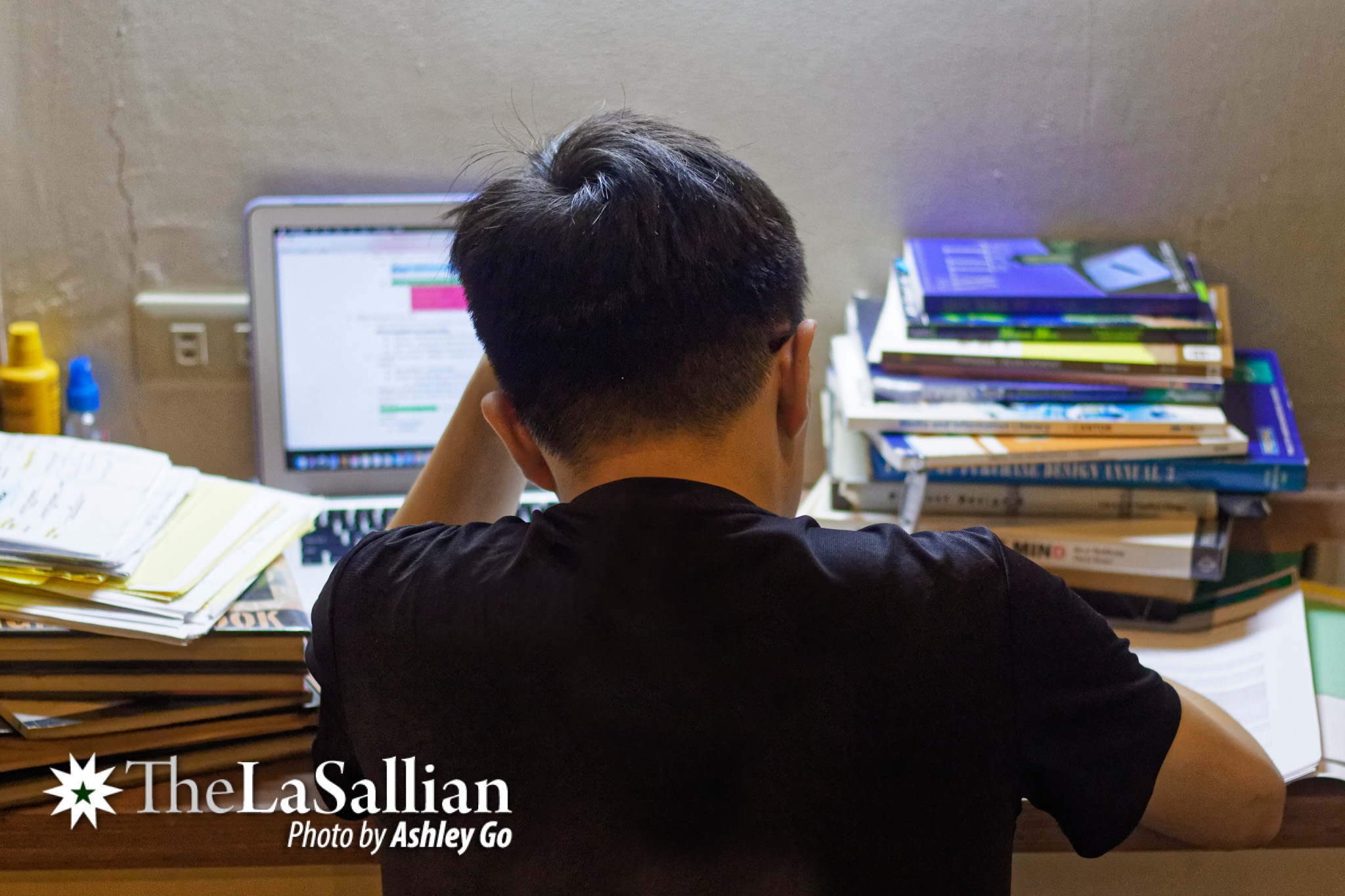A Help Desk Announcement from April 27 of last year announced that one academic unit is equivalent to 2.5 hours of workload, while a three-unit course takes up 7.5 hours of synchronous and asynchronous activities per week. Previously, Vice Chancellor for Academics Dr. Robert Roleda explained that this will prevent overworking students and consider the opportunities that they have in learning outside class.

For standardization of workload
The adoption of the learning policy was partly due to the administration’s efforts to make workload allocation uniform and to “conform with global standards.” While the pandemic placed the original proposal on hold, the workload policy was implemented nonetheless amid concerns of faculty overcompensating in asynchronous tasks.
Roleda admits that the administration in the past had not been clear on how much workload is given, with the previous policy only warranting one hour of class time for each unit.
To avoid overwork, the University derived the 2.5 hours from the recommended maximum load of 18 units a student may normally take, equating to 45 hours of academic work a week. This regulation scheme is also expected to aid students in determining how much academic load they can handle in one term.
Now, the policy serves as a guide for faculties in crafting their syllabus for a class. Since its implementation, the University relied on feedback in determining its effectiveness, with the University Student Government and the different academic departments relaying no complaints. Based on the faculty evaluations, Roleda also states that while the overall average grade has dropped compared to its pre-pandemic levels, it has not dropped “significantly.”
“We can say the faculty did not lower their standards drastically,” Roleda says, suggesting that the University still delivers despite the limitations. While some students have received a “Withdrawn” grade in some courses, the figure is “not unusually high.” The policy is expected to remain even after the pandemic.
Professor strategies, student feedback
Even with the policy, there are still no existing guidelines that evenly regulate academic load. Thus, each department adopted their own measures to ensure that students receive adequate work each week.
Dr. Arlene Inocencio, the School of Economics dean, affirms that professors are regularly reminded of such a policy and they also collect direct feedback from students through surveys and reviews of the courses’ syllabi.
Furthermore, Inocencio notes that the college’s “strong partnership” with the Economics Organization and School of Economics Government gives them confidence that their “attention will be called if any of [the] faculty is unreasonable in giving workload to students.”
Professors can also share their online teaching experiences through professional learning communities where they could discuss effective online teaching methods. There, they conduct simulations to determine the required length of time for students to complete their activities.
Similarly, the Department of Software Technology professors also employ similar measures, with Department Chair Dr. Briane Samson sharing that ways for monitoring and evaluating workload in their department are heavily based on trusting professors’ call. However, he assures that when flowcharts are designed, major and output-heavy subjects are distributed throughout the students’ program to help regulate academic workload.
For students, they understand that such requirements are essential for their degree and agree with the policy. Bles Padolina (III, ChE) shares that while their laboratory activities do seem overloaded, she is aware that the increase was made to offset the lack of physical laboratory activities. She furthers that unlike in the physical setup, most online assessments are done outside of class hours, which may give more leeway for schedule adjustments.
On the other hand, Danah Mongan (III, LGL) recognizes that the deadlines of some activities tend to overlap, citing times when she felt the time allotment for each task was inadequate.
Nevertheless, she agrees that their requirements are essential in imparting important learnings, and that she benefits from the policy as she is able to manage and plan workload.
Flexibility during calamities, ILWs
During typhoons and independent learning weeks (ILWs), professors also practice leniency in assigning activities, with both Inocencio and Samson attesting that their departments provide the necessary extensions and allowances through increased flexibility on deadlines.
These are prepared ahead of time, with professors also considering ILWs when creating course syllabi. According to Inocencio, their faculty members use the said weeks for output consultations instead, with faculty members avoiding setting deadlines.
In this regard, Samson adds that professors are prepared in converting synchronous assessments into asynchronous activities if necessary, to cater to both students and themselves.
As such, while the workload policy remains in place, students can expect their professors to continue their methods in distributing class activities, as well as for deadline flexibility to be exercised during calamities and ILWs.
